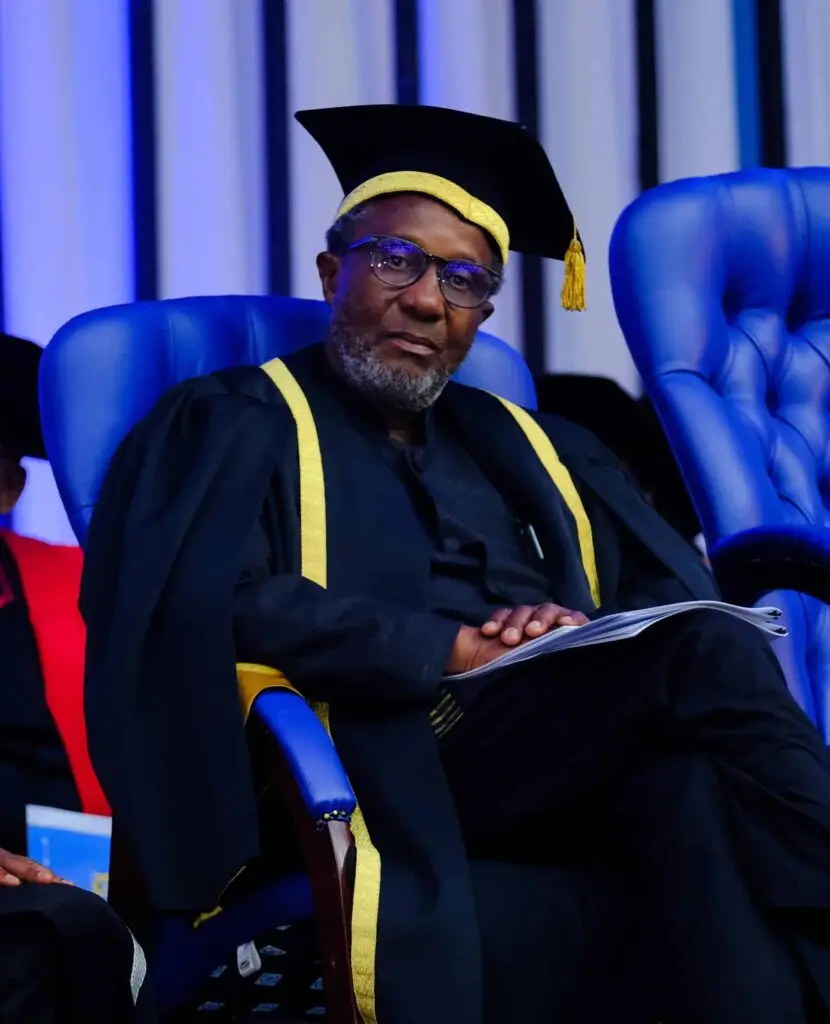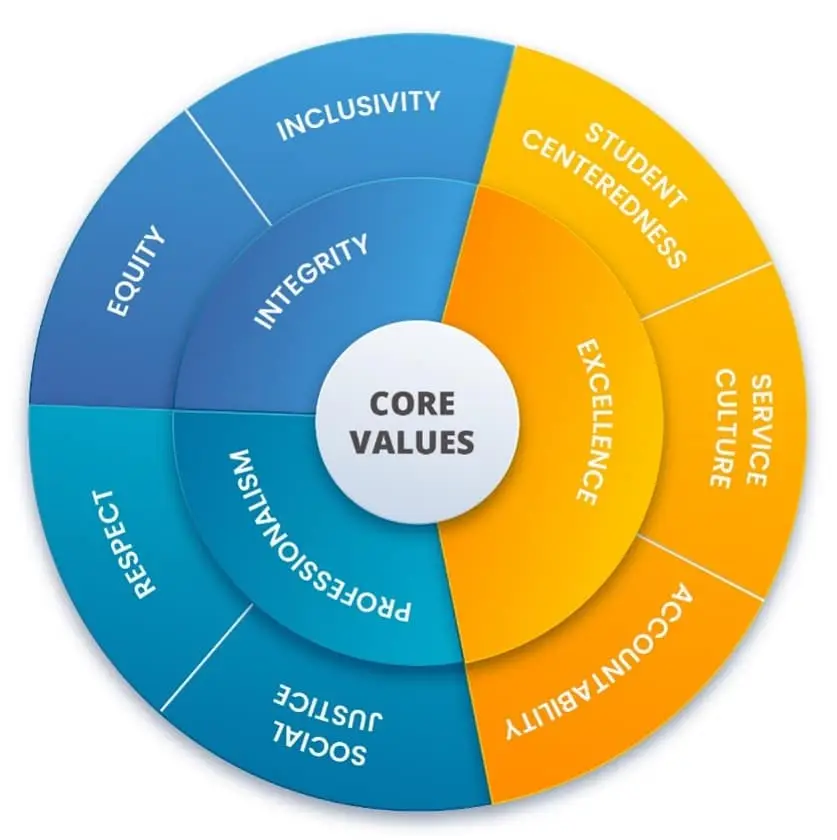About us
Strategic Plan 2022 - 2026

Foreword by UFH Chair of Council
Professor Lungisile Ntsebeza
The University of Fort Hare since its foundation has been a beacon of excellence and hope, a lodestar for national and continental regeneration. For that reason, its new Strategic Plan s so critically important in steering the future of this iconic institution.
Renewal means reinvigorating the institution, and walking alongside each other as Council, management academics, professional and support staff and students on this carefully crafted path to realise the new vision and give expression to our institutional values.
Truly honouring this set of values is perhaps the most important way in which to secure the success of the regeneration and renewal process.
The University of Fort Hare had taken the first steps on a path of renewal during 2022, as envisioned in the new Strategic Plan 2022 – 2026, which came into effect in 2022. The Strategic Plan, implemented in 2022 and revised in 2024, builds on UFH’s efforts to introduce “The Decade of Renewal.”
The University of Fort Hare is now positioned at the brink of a promising future, characterised by renewed enthusiasm, purpose, and a clear sense of direction as it pursues institutional revitalisation leading up to 2026. Professor Sakhela Buhlungu, the Vice-Chancellor and Principal, has identified 2020 to 2030 as a “decade of renewal” for the University of Fort Hare. As previously mentioned, the inauguration of the new Council in 2020 marked a significant opportunity for genuine renewal. This overarching theme of renewal serves as the guiding force behind the institution’s strategic direction for the upcoming five years, permeating all aspects of engagement and processes at UFH.
It’s crucial to emphasise that the renewal initiative at the University of Fort Hare extends beyond the adoption of new technologies for digitising and automating business systems. This renewal effort will also involve a reimagining of the learning and teaching processes, including the integration of blended learning approaches and the establishment of a strong foundation for quality assurance. Furthermore, it encompasses the redesigning of academic programs to align with the enhanced landscape at UFH and a commitment to ensuring that research has a meaningful impact on society through collaboration with key research partners.
There will be a revitalisation of the Fort Hare student experience, with a clear focus on producing graduates who are not only highly employable but also preferred by employers. This renewed effort will also place emphasis on the importance of a strong work ethic among staff and the cultivation of a service-oriented culture, ultimately striving to create an institution that both staff and students take pride in being associated with.
Transformation plays a pivotal role in breaking free from the “Historically Disadvantaged” label and reclaiming our rightful identity as a distinctively innovative rural African university. We are committed to leading the charge in decolonising education while embracing principles of inclusivity and universal access.
By the Vice-Chancellor and Principal
Introduction
This new Strategic Plan is a blueprint for the building and reconstruction work that will be undertaken over the next five years. This will see the University of Fort Hare, founded in 1916 and 106 years old, re-established in its rightful place as one of the foremost institutions of higher learning in South Africa and the continent. Calling this Strategic Plan ‘Towards a Decade of Renewal’ signals that we are not content to bask in the glory of the institution’s proud origins and tradition of trailblazing scholarship and leadership. Instead, we are committing to putting in the significant work required to strengthen the foundations and reimagine the institution where required. The renewal project will see the University flourishing by the end of the decade. We will be offering new niche programmes and cutting-edge curricula, conducting high quality, high impact research, supporting innovation, embracing innovative pedagogies, utilising hybrid modes of delivery and providing a supportive learning and quality living environment for our students.
This requires in the first place embracing an ethos of high expectations of ourselves and our students, and of grit and steadfastness in the pursuance of our objectives, underpinned by our institutional values. Renewal is multi-faceted, and is all about the culture of the institution. It requires in the first place an institutional culture underpinned by ethical leadership and practice, regard for the autonomy of the University, respect for the critically important place of research, scholarship and teaching, and a focus on students and enhancing the student experience.
Renewal therefore also means overhauling our organisational design to support our core mission. We need to do so in a manner that ensures that our academic staff feel supported and valued in order to perform at the highest level. Likewise, we will have to make sure that our support staff are motivated and capacitated to provide a high quality, people-centred service to staff and students. We will be putting in place or updating a suite of policies and procedures in each Division of the University to strengthen the core of the institution and reduce risk. Finally, we are resolutely committed to digitisation and providing a strong ICT infrastructure for all our functions.
Financial sustainability is at the core of the renewal project, with integrated planning in relation to the programmes we offer and the optimisation of our campuses, firm management of our entities, a focus on third-stream income generation and a culture of financial prudence in all areas of the University.
The renewal project is also outward-looking – we will strive to increase the visibility and effectiveness of the University in its regional, national and international engagements.
I have been engaging with Divisions and Departments over the last year and will be continuing doing so. On these rounds, I have been encouraged by the commitment and loyalty of staff to the institution. Renewal is therefore a collective endeavour, in which we counter fragmentation and anomie and unlock energy in a planned, systematic and measurable way towards the realisation of a shared vision. For this reason, the Plan has been developed in a highly consultative manner, reflecting the aspirations and concerns of the broader University community.
To drive the implementation of the Plan at management level, the Management Executive Committee now comprises seven members, with a new Deputy Vice-Chancellor: Research, Partnerships and Innovation portfolio established. In addition, the Dean: Students Affairs portfolio is now a member portfolio of the MEC, to ensure that student matters are dealt with at the highest level. Together with the Deputy Vice-Chancellor: Institutional Support and Deputy Vice-Chancellor: Teaching and Learning portfolios, the Registrar, and the Chief Financial Officer, the composition of the management team is fit-for-purpose.
Vision, Mission & Values
Inspiring a Brighter Future
Vision Statement
To be a distinctive African university, advancing excellence and innovation in research, teaching, learning, administration, and social engagement.


Driving Purposeful Change
Mission Statement
To provide quality education and conduct innovative research focusing on niche areas that contribute to the advancement of knowledge that is socially and contextually relevant, with an overall emphasis on the application of digital technologies.
Grounded in Integrity
Core Values
Our core values are:
- Equity and Inclusivity, underpinned by Integrity
- Student centeredness, Service culture and Accountability underpinned by excellence
- Social justice and Respect underpinned by professionalism

Institutional Goals
Institutional Goal 1: Pursue High Quality and Innovative Teaching and Learning
All Higher Degree Institutions were faced with challenges to move to online learning and teaching during the COVID pandemic. It, however, accelerated Universities’ implementation of new Elearning/Blended learning pedagogies and online assessments and the need to fast-track the recurriculation of current programmes to develop unique flagship programmes and programmes that address the needs of the fourth industrial revolution.
To achieve this, it would be necessary to upskill academic and support staff and create capacity to develop and maintain the E-learning/Blended learning pedagogical model and the new flagship programmes.
Strategic Objectives to achieve high quality and innovative teaching and learning
- Curriculum renewal through the development of innovative, socially relevant programmes and improving the quality of existing programmes (L1)
- Capacitation of staff and students to optimise the utilisation of technologies for integrating E-Learning/Blended Learning Pedagogies (L2)
Institutional Goal 2: Build the University’s Research and Innovation Profile
The University of Fort Hare has established a strong foundation for its research programme.Therefore, it will strive to build a culture focused on the quality of the research output, which impacts society and supports innovation. This will require that the research capacity within academic departments be enhanced and developed, including increasing the number of academics who have a doctoral degree and those who are NRF rated.
Supporting mechanisms will be put in place to ensure the sustainability and multi-disciplinarity of identified research niche areas, including developing and maintaining Research Partnerships and Funding Collaborations and digitalised systems that improve Research Data Management.
Strategic Objectives to build the University’s research and innovation profile
- Strengthen the Research and Innovation Profile of UFH by creating a research culture that focuses on quality and impact (L3)
Institutional Goal 3: Improve the Quality of Student Life and Enhance Student Experience
A priority is to create an environment that supports students in active and experiential learning, wellbeing, and psycho-social development. Therefore, improving the teaching and learning environment and student facilities and residences will receive attention, together with the development of graduate attributes relevant to society and the job market. Furthermore, the enhancement of student governance and leadership will feature strongly over the next five years.
Strategic Objectives to improve the quality of student life and enhance student experience
- Develop relevant student graduate attributes for employability and enhance student experience (S1)
- Enhance student governance and leadership (S2)
Institutional Goal 4: Enhance the University’s Regional, National, and International Standing and Impact
As the University embarks on the journey of renewal, it will be necessary to develop a clear brand identity that will incorporate the University’s reputation and govern interactions with all stakeholders, including but not limited to alumni, government, funders, the wider University community, and prospective students. This will enhance the University’s impact and standing and facilitate successfully leveraging and cultivating goodwill from specifically the University’s alumni and established partnerships.
Strategic Objectives to enhance the University’s Regional, National and International standing and impact
- Implement an improved strategic approach to branding, marketing, and reputation management of the university (S3)
Institutional Goal 5: Strengthen Good Governance to ensure Effective Management and Leadership
The inculcation of a service culture focused on professional, ethical conduct, and accountability is central to ensure the University’s legal compliance and limiting the University’s exposure to preventable risk.
In line with establishing a digitised University, the academic administration and Governance systems will be digitised and automated, ensuring integrity and efficiency in student administration processes and governance.
Strategic Objectives to strengthen good governance to ensure effective management and leadership
- Improve policy and regulatory environment (P1)
- Ensure University’s Legal Compliance and limit risk exposure (P2)
Institutional Goal 6: Provide Efficient and Fit for Purpose Infrastructure and Support Services
Standard Operating Procedures and Guidelines are to be developed for all faculties, units and departments. The University of Fort Hare also intends to develop and maintain its infrastructure. It fully supports a digital environment and all the requirements posed by an E-learning/Blended learning pedagogical model. Attention will be given to campus security, health and safety compliance, and optimal space management.
The development of effective and efficient business processes across the institution will be advanced through appropriate technology and digitalisation, in line with a new ICT Infrastructure Architecture Plan and a Digital Skills Development plan.
The move to an E-learning/Blended learning pedagogical model and a digitised University requires improvement of cyber-security and the development and maintenance of reliable and secure data repositories that meet the institutional information requirements.
Effective and efficient Human Capital provision and development in all business areas are crucial to ensuring the achievement of the institutional goals.
Strategic Objectives to provide efficient and fit for purpose infrastructure and support services
- Review and repurpose the three campuses to inform the development, upgrade and maintenance of fit for purpose physical infrastructure (P3)
- Digital transformation of business processes (P4)
- Development and implementation of ICT compliance and governance requirements (P5)
- Provide excellent core Human Resources, Professional Development, and wellness services across all business areas (P6)
Institutional Goal 7: Ensure Financial Sustainability and a broader Resource Base
The long-term financial sustainability of the Institution and its entities (operating units, subsidiaries, trusts and joint ventures) is to be prioritised with the implementation of sound financial management and compliance practices. These are to be supported by the use of appropriate technology to enable delivery on the given mandate.
Strategic Objectives to ensure financial sustainability and a broader resource base
- Ensure long term financial sustainability of the University and its entities (F1)
- Ensure development and application of sound financial management and compliance practices supported by the necessary technologies for the benefit of our stakeholders (F2)
Resources
UFH Strategic Plan 2022 - 2026
Download and read UFH’s Strategic Plan 2022 – 2026

